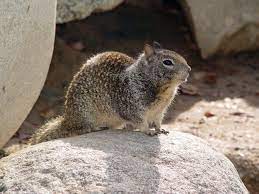The Role of Rodents in California’s Ecosystems: Friend or Foe?

We see rodents in our homes as a nuisance. But despite their sometimes unwelcome reputation, rodents play a crucial role in California’s ecosystems and the world in general.
Rodents play a diverse and complex role in ecosystems, acting as seed dispersers, nutrient cyclers, prey for predators, ecosystem engineers, and even pollinators. While some concerns exist regarding invasive species and pest outbreaks, it’s important to recognize the significant ecological value that these small mammals bring.
Roles of Rodents in California’s Ecosystems
Rodents play various important roles in ecosystems, and their presence has both direct and indirect effects on the environment. Here are some of the key roles of rodents in ecosystems:
1. Seed dispersal and germination
While rodents can be considered pests in certain contexts, they also play a role in agriculture. Many rodents, such as squirrels, beavers, and chipmunks, bury seeds for later consumption but sometimes forget about them. These buried seeds eventually germinate, contributing to reforestation, wetland creation, and plant diversity. Additionally, some rodents’ digestive systems scarify seeds, aiding in germination and seedling growth.
2. Nutrient cycling
Rodents contribute to nutrient cycling in ecosystems. Their activities, such as feeding and burrowing, influence the distribution of organic matter and nutrients in the soil by breaking down plant material and animal waste. This process releases nutrients back into the soil, making them available for other organisms and promoting plant growth.
3. Predator’s prey
Rodents form a vital food source for countless predators, including owls, hawks, snakes, foxes, and even larger carnivores like wolves. Their abundant populations maintain the balance of the food chain and keep predator populations in check.
4. Ecosystem engineering
Many rodents are burrowers, creating intricate tunnels and burrows in the soil. These burrows provide shelter for the rodents themselves and can be used by other animals as well. These burrows also trap rainwater, contributing to drought resilience in grassland ecosystems. The digging and burrowing activities of rodents help in soil aeration, water infiltration, and nutrient cycling.
5. Pollination
Certain rodents, like kangaroo rats, pollinate various plant species while foraging for pollen and nectar. This helps maintain plant diversity and reproductive success in certain ecosystems.
6. Insect control
Some rodent species, such as certain types of mice and rats, are opportunistic feeders and consume insects. By controlling insect populations, rodents indirectly contribute to maintaining the balance of insect communities, preventing outbreaks that could have negative effects on plants and other animals.
7. Indicator species
Changes in rodent populations can serve as indicators of broader ecological shifts or environmental changes. Monitoring rodent populations can provide insights into the health and dynamics of an ecosystem. For example, alterations in their abundance may indicate changes in habitat quality, food availability, or the presence of contaminants.
Despite their important ecological roles, certain rodent species can become pests when their populations grow unchecked, causing damage to crops, structures, and stored food. In such cases, effective pest management strategies may be necessary to mitigate the negative impacts while still recognizing the overall importance of rodents in ecosystems.
Seek Help from Rodent Control Experts
Pro Pacific Pest Control can help you eliminate rodents. We offer QualityPro-certified rodent control treatments to eliminate all types of rodents. Learn more about our Rodent Control and Extermination Service in San Bernardino, Los Angeles, San Diego, Riverside, and Orange County.
Call Pro Pacific Pest Control at 800-901-1102 to request a quote!



